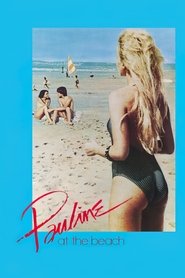The film owes clear homage to Pierre de Marivaux, the 18th-century French playwright whose comedies rest on the intricacies and subtleties of love. Marivaux’s characters, a contemporary critic wrote, “not only tell each other and the reader everything they have thought, but everything that they would like to persuade themselves that they have thought.” The same is often true for Rohmer’s characters. They are swept up in their narratives about who they are, worlds of words and artifice. Though the whole film turns around their love triangle, they barely seem to care about each other. They care far more about the stories they are telling about themselves. For them, the concept of being in love is far more important than the quotidian work of actual love.[…]
There is a quote at the opening of the film: “He who talks too much, undoes himself.” It’s ancient French, stiff and formal, taken from a 12th-century novel. On a closer viewing, one sees that this is the key.
[…]
Her physicality is important to the film, the 15-year-old-ness of her body, the way she glimmers between woman and child. It’s not a film whose sexual politics have aged particularly well, but there’s something undeniably truthful here about the power of a girl that age, how her refusal to grow up can be a daring act all its own.
— Nadja Spiegelman (Metrograph)

